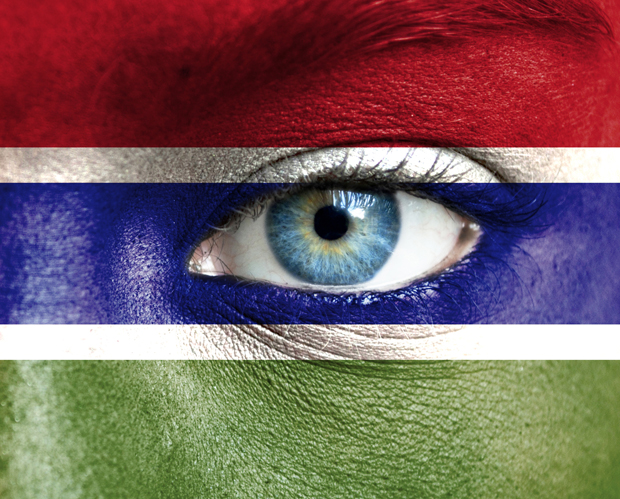
Gambian President Yahya Jammeh has bowed to EU pressure to implement political reforms — including changing the country’s restrictions on the media.
This comes barely a year after he rejected a proposal from the European Union to introduce reforms, including repealing draconian media laws, establishing a National Human Rights Commission as proposed by the Commonwealth Secretariat, and abolishing the death penalty within 24 months.
In January last year President Jammeh told local media The Point and Observer newspapers that he will not be blackmailed by the European Union with what he described as “chicken change” to accept what is not in the interest of the Gambia people. He said the “Gambia will never be colonised twice”.
The EU delegation held a closed door meeting with Jammeh last Tuesday to discuss the way forward. Dominique Delacour, the Dakar-based European Union ambassador, told a local journalist that: “We discussed also the issue of consular affairs issuing visas to Gambians. So we had a very frank discussion on an array of issues, which was very productive. The Gambian side also presented their main strategy in terms of governance, and human rights and development cooperation,” she said.
Delacour said the delegation was also in Banjul to present to the Gambian leader with the result of the their preliminary discussions in the country, as well as the declaration that came out of the recent EU-Africa summit held in Brussels.
The European Union is the leading aid provider for the Gambia with a total of €65.4 million of grants allocated for for the period 2008 -2013.
But its demands for more political freedom are seen by the Gambian regime as interference in the country’s domestic politics. Article eight refers to the political dimension of the Cotonou Agreement, the legal framework covering political, developmental and trade relations between the EU and African, Caribbean and Pacific countries, of which the Gambia is a signatory.
A group of Gambian rights activist led by the Amadou Scatted, Janneh former Information Minister who was jailed for attempting to stage a non-violent protest against the dictatorship in Gambia has present a set of recommendation to the human rights bodies ahead of the Universal Periodic Review meeting in Switzerland later this year. This is with a view to pressure authorities to carry out comprehensive reform such as the repealing all draconian media laws, and the protection of human right in general.
However, the Gambia National Assembly on Tuesday unanimously adopted two books entitled A Million Reasons to Leave the Commonwealth and How the Tragic Consequences of British Looting and Misrule in The Gambia Inspired the Foundation of the United Nation’s Drive for Decolonisation in January 1943 and Beyond.
According to pro-government newspaper Daily Observer, the books were authored by the president with a view to reaffirm its commitment to end Gambia’s decade-long membership to the Commonwealth, the 53-member organisation headed by the Queen of England.
Parliamentarian Seedy Njie said in a motion in the first session of the legislative that the content of the books were reason enough for the Gambia to leave the commonwealth. Meanwhile, NJie’s statement has confirmed the argument of Mr Halifa Sallah on the content of the book authored by the authoritarian leader.
This article was posted on 14 April 2014 at indexoncensorship.org




